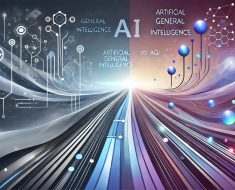Machine Learning Predicts Secondary Infections in COVID-19 Patients: A Medical Breakthrough

In a groundbreaking development, researchers at the University of Queensland have employed a machine learning technique known as LASSO (least absolute shrinkage and selection operator) to predict the likelihood of secondary bacterial infections in COVID-19 patients hospitalized. Their findings indicate that the expression of seven specific genes could serve as a predictor for those at an increased risk of such infections.
When Data Science Meets Medical Science
The success of this study is a testament to the power of interdisciplinary collaboration. Clinicians, virologists, and data scientists from around the globe came together to develop this predictive model. By using LASSO, they have pioneered a simpler machine learning method that bridges the gap between data science and other scientific fields. It’s a model that could inspire a profound understanding of how data science can revolutionize the medical industry.
A New Age of Informed Decision-Making
This predictive model equips healthcare professionals with the valuable ability to make more informed decisions about prescribing antibiotics. By analyzing blood samples, they can determine the likelihood of patients developing bacterial co-infections after being admitted to the hospital. This could potentially reduce the risk of antibiotic resistance and the emergence of ‘superbugs.’ It promises a new age of informed decision-making, where the use of antibiotics is guided not by guesswork, but by data-driven predictions.
Looking Ahead: The Promise of Machine Learning in Healthcare
The success of this study underscores the immense promise that machine learning holds for healthcare. As we continue to explore its potential, we may witness a transformation in medical practices. It could pave the way for more accurate diagnoses, personalized treatment plans, and ultimately, improved patient outcomes. This study serves as a beacon, illuminating the path ahead for a seamless integration of data science and healthcare.



